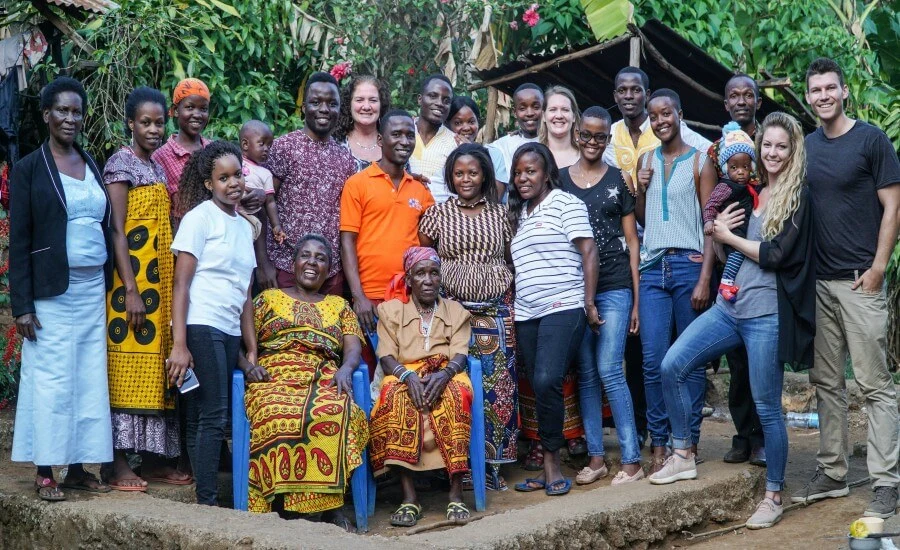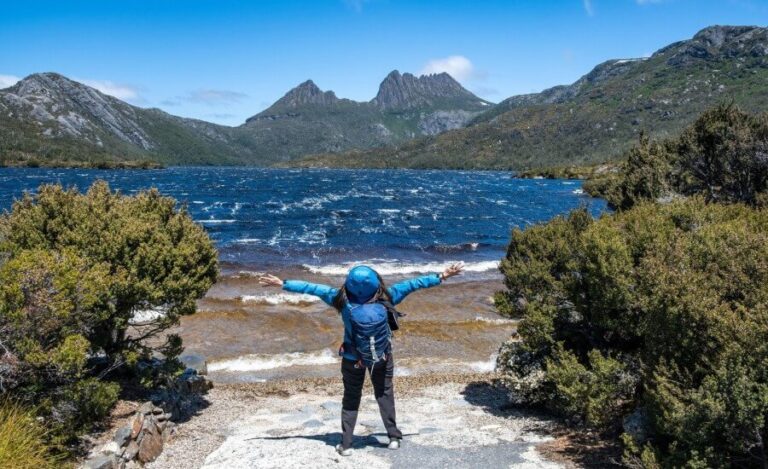
Imagine sitting under the vast African sky, sharing a simple meal with a host family, laughter bridging language gaps as you learn to cook a traditional dish. Picture working side-by-side with local community members, contributing your skills to a project they initiated, feeling the rhythm of daily life in a way no tourist itinerary could ever capture. This isn’t just travel; it’s a deep dive into connection, understanding, and shared purpose the essence of meaningful volunteering.
The African continent, a vibrant tapestry of thousands of distinct cultures, languages, and landscapes, offers profound opportunities for those seeking more than just a vacation. While its iconic wildlife and stunning scenery draw many, a growing number of travelers are seeking deeper engagement through volunteer work. Done thoughtfully and responsibly, these experiences can be truly transformative, offering pathways for Immersing in African Culture: Volunteer Projects Changing Lives impacting not only communities but irrevocably shaping the volunteers themselves. This guide explores the landscape of volunteering in Africa, focusing on cultural immersion, ethical considerations, and the potential for mutual growth and understanding.
Disclaimer: Africa is a continent of immense diversity. This post aims to discuss general themes of volunteering and cultural immersion, but experiences will vary vastly depending on the specific country, region, community, and organization involved. Always conduct thorough research specific to your destination.
The Heartbeat of Connection: Why Volunteer for Cultural Immersion?
What draws individuals to volunteer their time and resources in unfamiliar cultural contexts, particularly across the diverse nations of Africa? While the desire to “help” or “make a difference” is often present, the motivations for seeking cultural immersion through volunteering run much deeper, touching upon fundamental human needs for connection, understanding, and growth.
For many, it’s a yearning for authentic connection that transcends superficial tourist interactions. It’s about moving beyond observing a culture from the outside to participating in its daily rhythms, building genuine relationships, and understanding life from a different perspective. Sharing tasks, meals, and conversations creates bonds that package tours rarely allow.
Volunteering offers a powerful platform for cross-cultural understanding. Living and working alongside local people provides invaluable insights into different values, beliefs, social structures, and ways of life. It challenges preconceived notions and stereotypes often perpetuated by media, fostering empathy and a more nuanced appreciation of global diversity. It’s an education that no textbook can provide.
Furthermore, such experiences are potent catalysts for personal growth. Stepping outside one’s comfort zone, navigating unfamiliar situations, communicating across language barriers, and adapting to different norms builds resilience, flexibility, and problem-solving skills. Volunteers often return home with a broadened worldview, a deeper sense of gratitude, and increased self-awareness.
Ultimately, volunteering for cultural immersion is less about “fixing” something and more about learning and exchange. It’s recognizing that every culture holds wisdom and that genuine partnership involves both giving and receiving. It’s about building bridges, not just projects. What deeper motivations might be calling you towards such an experience?
Stepping into Another World: The Essence of Cultural Immersion
Cultural immersion goes far beyond visiting landmarks or trying local food in a restaurant. Within a volunteer context, it signifies a commitment to stepping respectfully into the daily life of a community, learning its ways, and participating authentically. It’s about being a guest who is eager to learn and contribute appropriately, rather than just an observer passing through.
True immersion often involves:
- Living Locally: Staying with a host family or in basic volunteer housing within the community, rather than isolated compounds or hotels, provides constant opportunities for interaction and understanding daily routines.
- Learning the Lingo: Making an effort to learn even basic greetings and phrases in the local language demonstrates respect and opens doors to deeper connections. It shows you value their culture enough to try.
- Participating in Daily Life: This could mean helping with household chores, accompanying hosts to the market, respectfully attending community events or ceremonies (if invited), or simply spending time listening to stories.
- Embracing Local Customs: Understanding and respecting local etiquette regarding dress, social interactions, gift-giving, and showing deference to elders is crucial. It requires observation, humility, and sometimes asking for guidance.
- Eating Locally: Sharing meals prepared locally is a fundamental aspect of cultural exchange. Being open to trying new foods (while being mindful of dietary needs/safety) is a sign of respect and engagement.
- Listening More Than Speaking: Especially initially, prioritize listening and observing. Understand the context, the challenges, and the local perspectives before jumping in with assumptions or solutions. Humility is key.
Superficial engagement might involve taking a brief workshop or watching a performance. Deep immersion involves sharing life, understanding context, and building relationships based on mutual respect. It requires patience, adaptability, and a genuine desire to learn. This level of engagement is where the most profound cross-cultural understanding occurs.
Immersing in African Culture: Volunteer Projects Changing Lives

Volunteer projects serve as the practical framework through which cultural immersion and potential impact unfold. When structured responsibly and aligned with local needs, these initiatives provide a platform for meaningful interaction and contribution. Engaging in Immersing in African Culture: Volunteer Projects Changing Lives means participating in work that ideally supports community goals while fostering deep cross-cultural connections.
The types of projects available across the continent are diverse, reflecting the varied needs and contexts:
Education & Youth Development
- Focus: Assisting local teachers in classrooms, organizing after-school activities, supporting literacy programs, coaching sports, teaching basic computer skills.
- Immersion: Working directly with children and educators provides insights into the education system, local aspirations, and challenges faced by youth. Building relationships with students and colleagues is central.
Conservation & Wildlife Protection
- Focus: Participating in wildlife monitoring, anti-poaching patrols (support roles), habitat restoration, environmental education campaigns, research assistance in national parks or reserves.
- Immersion: Living in research camps or near protected areas, working alongside rangers and conservationists offers a unique perspective on human-wildlife coexistence and environmental challenges.
Community Building & Empowerment
- Focus: Assisting with construction projects (schools, clinics, sanitation facilities – often requiring skilled and unskilled support), supporting local enterprise development, participating in sustainable agriculture initiatives, assisting women’s groups.
- Immersion: Working physically alongside community members on tangible projects builds strong camaraderie and direct understanding of local infrastructure needs and collaborative efforts.
Health & Well-being Initiatives
- Focus: Qualified medical professionals might assist in clinics or hospitals. Non-medical volunteers may support health education campaigns (hygiene, nutrition), assist with administrative tasks, or help care for vulnerable groups (excluding direct care in orphanages, which raises ethical concerns – see ethical section).
- Immersion: Gaining insight into local health challenges, healthcare systems, and community well-being practices. Requires immense sensitivity and adherence to ethical guidelines.
Crucially, impactful projects are typically locally driven, with volunteers supporting existing initiatives led by community members or local organizations. The goal is partnership and capacity building, not imposing external solutions. Through shared work towards common goals, volunteers gain unparalleled cultural insight and contribute meaningfully.
More Than Helping: The Two-Way Street of Impact

The narrative around international volunteering often focuses heavily on the impact volunteers have on the community. While positive contributions are possible under the right conditions, it’s crucial to recognize that volunteering is profoundly a two-way street. Often, the most significant and lasting impact is the transformation experienced by the volunteers themselves.
Impact on Volunteers:
- Shifted Perspectives: Living in a different cultural context challenges assumptions, broadens worldviews, and fosters a deeper understanding of global interconnectedness and inequality.
- Personal Growth: Navigating new environments builds confidence, adaptability, resilience, and cross-cultural communication skills highly valued in any field.
- Humility and Gratitude: Witnessing different ways of life and potentially facing resource limitations often cultivates deep humility and gratitude for one’s own circumstances.
- Lifelong Connections: Genuine relationships formed with host families, local colleagues, and fellow volunteers can become cherished lifelong connections.
- Clarified Values: The experience can lead to introspection about personal values, career paths, and what constitutes a meaningful life.
Potential Impact on Communities (When Done Responsibly):
- Skills & Knowledge Exchange: Volunteers can bring specific skills (technical, educational, medical) that complement local expertise if genuinely needed and requested. Equally, volunteers learn invaluable local knowledge and skills.
- Resource Support: Volunteer fees and associated tourism can provide financial resources for projects and local economies (if managed transparently and ethically).
- Boosting Local Initiatives: Volunteers can provide extra hands and energy to support under-resourced community projects, helping them achieve their goals.
- Building Global Bridges: Hosting volunteers fosters cross-cultural understanding within the community and connects them to a wider global network.
- Inspiration & Morale: The presence of committed volunteers can sometimes boost morale and provide encouragement for ongoing community efforts.
However, community impact must be viewed critically. It’s most likely positive when projects are sustainable, locally owned, culturally appropriate, and address genuinely identified needs without creating dependency. The most valuable “impact” is often relational – the mutual respect and understanding fostered through shared experience. Volunteers almost invariably gain more than they give, and acknowledging this fosters humility and responsible engagement.
Ethical Volunteering Considerations: Asking the Right Questions

The desire to volunteer is admirable, but good intentions are not enough. Unethical or poorly planned volunteer placements can inadvertently cause harm, perpetuate stereotypes, undermine local economies, or create dependency. Engaging responsibly requires critical thinking and asking tough questions before committing. This is paramount when considering volunteering anywhere, including across the diverse nations of Africa.
Here are crucial ethical considerations:
- Is the Project Locally Driven? Does the initiative originate from the community’s identified needs and priorities, or is it imposed by an external organization? Are local people in leadership roles? Genuine partnership is key.
- Are My Skills Genuinely Needed (and Appropriate)? Am I taking a job a local person could do? Am I qualified for the tasks involved (especially in health or education)? Short-term, unskilled labor is often less valuable than financial support or capacity building, unless specifically requested for a community build, for instance.
- Does the Project Avoid Harm? Critically evaluate projects involving vulnerable populations. Volunteering in orphanages, for example, is widely discouraged by child protection agencies as it can fuel the separation of children from families and create attachment issues. Ensure the project has robust child protection policies and ethical guidelines.
- Is the Organization Reputable and Transparent? Research the volunteer-sending organization thoroughly. Are they transparent about how fees are used? Do they have strong relationships with local partners? Do they provide adequate training and support? Look for non-profits with clear accountability structures.
- Is Sustainability a Focus? Does the project aim for long-term positive change that can continue after volunteers leave? Does it build local capacity rather than creating reliance on external help?
- What is the True Cost? Understand exactly where your program fees go. How much directly supports the project and community versus administrative overhead or profits? Compare costs with direct donations or independent travel combined with supporting local businesses.
- Does it Respect Local Culture? Does the program provide cultural orientation? Does it encourage respectful behavior, dress, and interaction? Does it avoid exploitative “poverty tourism”?
- Am I Prepared to Learn and Adapt? Approach the experience with humility, ready to listen, learn, and adapt, rather than assuming you have all the answers or a superior way of doing things.
Asking these questions helps ensure your volunteer experience is genuinely beneficial and avoids contributing to negative impacts. Ethical volunteering prioritizes the host community’s dignity, autonomy, and long-term well-being.
Preparing for Your Volunteer Journey: Mind, Body, and Spirit

Once you’ve chosen a responsible volunteer opportunity, thorough preparation is essential for a smooth, safe, and impactful experience. Preparing involves logistical planning as well as mental and emotional readiness for the cultural immersion ahead.
Logistical & Physical Prep:
- Deep Research: Learn as much as possible about the specific country, region, and local culture you’ll be visiting. Understand its history, social norms, political situation, and safety considerations. Research the project specifics.
- Health & Vaccinations: Consult a travel doctor well in advance (4-6 weeks minimum) regarding required and recommended vaccinations, malaria prevention, and other health precautions specific to your destination. Assemble a personal first-aid kit.
- Visa & Documents: Check visa requirements for your nationality and the duration of your stay. Ensure your passport is valid for at least six months beyond your return date. Make copies of important documents.
- Flights & Insurance: Book flights and secure comprehensive travel insurance that covers medical emergencies, evacuation, and potentially volunteer activities.
- Finances & Fundraising: Understand all program costs and budget for personal expenses. If fundraising, start early and be transparent about how funds will be used.
- Packing: Pack practical, durable, and culturally appropriate clothing (modest dress is often advisable – check local norms). Include essentials like comfortable shoes, sun protection, insect repellent, necessary medications, a basic headlamp, and any project-specific items requested. Pack light but smart.
Mental & Emotional Prep:
- Language Basics: Learn key greetings and polite phrases in the local language(s). Even a small effort shows immense respect. Use apps, online resources, or guidebooks.
- Manage Expectations: Be prepared for things to be different, potentially challenging, and not always go according to plan. Cultivate flexibility, patience, and a sense of humor. Let go of rigid expectations about what you will “achieve.”
- Cultural Humility: Approach the experience as a learner. Be prepared to listen, observe, and ask questions respectfully. Acknowledge that your cultural perspective is not the only valid one.
- Prepare for Culture Shock: Understand that experiencing culture shock (feelings of disorientation, frustration, or anxiety in a new environment) is normal. Read about its stages and coping mechanisms.
- Reflect on Motivations: Revisit why you are volunteering. Ensure your motivations are grounded in respect, learning, and partnership, not pity or a desire to “save.”
- Emotional Resilience: Be prepared to potentially witness poverty or challenging circumstances. Be ready to process your emotions in a healthy way, perhaps through journaling (if appropriate) or reflection.
Thorough preparation demonstrates respect for your host community and equips you to navigate the experience with greater awareness and resilience.
Conclusion: The Enduring Echoes of Exchange

Volunteering in Africa, when approached with careful consideration, cultural sensitivity, and a spirit of genuine partnership, offers an unparalleled opportunity for deep cultural immersion and transformative personal growth. It’s a path that leads beyond the well-trodden tourist trails into the heart of communities, fostering connections that can reshape perspectives and enrich lives – both for the volunteer and, potentially, for the hosts.
The journey of Immersing in African Culture: Volunteer Projects Changing Lives is not about quick fixes or grand gestures of saving. It’s about the slow, patient work of building understanding, sharing skills respectfully, learning from diverse wisdom, and recognizing our shared humanity across cultural divides. It requires humility, adaptability, and a constant commitment to ethical engagement, ensuring that our presence supports rather than disrupts, empowers rather than imposes.
The true measure of such an experience lies not just in the tasks completed, but in the relationships built, the perspectives gained, and the enduring echoes of mutual learning and respect. The memories forged – sharing stories under starlit skies, the satisfaction of collaborative work, the warmth of newfound friendships – often become the most cherished souvenirs.
If you feel called to explore the vibrant cultures of Africa through volunteering, do so with open eyes, an open heart, and a commitment to responsible practice. Research diligently, choose wisely, prepare thoroughly, and step forward not as a savior, but as a humble guest, ready to learn, contribute appropriately, and be changed by the encounter. The most meaningful journeys are often those where we discover as much about ourselves as we do about the world.








